What to Do?
Notice
I have created this page in response to many messages asking me for help. Please understand that I am not a doctor or counselor and cannot give any advice further to what follows on this page.
If you suspect you, or a friend or relative may be dependent, you may like to consider the following contained in an interview between the Yomiuri Newspaper and Prof. Ashton.
Prof. Ashton:
Perhaps it would be better to read the manual through in its entirety first. Then before beginning the reduction process, consult your doctor and inform him of your intentions.
Your doctor's agreement and co-operation is necessary since he/she will be prescribing the medication. It may be a good idea to tell him that you have read the manual already and highlight any points that you feel he should be made aware of, as many doctors are still inadequately informed and are not always aware of the risks involved.
When reducing, it is advisable to consider the following cautionary points.
- The possible need to switch to a long acting benzodiazepine before starting the tapering process
- The importance of equivalent doses if switching to another benzodiazepine (See table in manual)
- Complete the withdrawal from benzodiazepines first if being co prescribed with any antidepressants to help avoid depression during withdrawal
- The need for you to be in control and to be able to taper at your own pace
- The need for regular monitoring by the doctor
- The need to be able to accommodate any of the influential factors relating to individuality as this has an influence on the withdrawal experience. This may include adapting a schedule to individual needs as all eventualities cannot be covered in the schedules suggested in the manual.
Top of Page
The withdrawal schedules provided in the manual are only intended as "general guides". Each person's experience of withdrawal is unique and the course of withdrawal depends on many factors.
Some genetic differences occur in Asian populations. Due to this, it has been said that some individuals have found it difficult switching to diazepam as recommended. The important thing is to accommodate individual factors.
Top of Page
Unfortunately, you may not be able to expect much from your doctor simply because many of them know nothing, or at best, know very little about benzodiazepine dependency, withdrawal etc. Hence the reason why you find yourself in this predicament…
Therefore, after reading The Ashton Manual and discussing the situation with your doctor, if he still doesn’t understand, you may have to consider getting second or even third and forth opinions…
In places in like Japan, where proper information and knowledge is severely lacking, it may be extremely difficult to get the professional help you so desperately need. Further, due to apparent ignorance and arrogance, there have been many reports of doctors reprimanding their patients when they seek help (See book coverage published by Kodansha).
For the neglected patient, this can lead to feelings of helplessness, hopelessness, loneliness, isolation and desperation through no fault of their own.
The reality is that, out of desperation, many people have turned to supporting one another and sharing information via various social media on the internet (See below).
Why do doctors know so little? See “Who’s Responsible?”
Top of Page
Unfortunately, for the many millions of unfortunate sufferers around the world, many respective governments have failed to provide adequate facilities and support to the people they have failed miserably through their own incompetence and inadequate policy making. Therefore, finding suitable facilities may be very difficult, if not impossible.
Consider this extract from an interview between the Yomiuri Newspaper and Prof. Ashton.
Yomiuri Newspaper:
“Prof. Ashton, you spent many years running a benzodiazepine withdrawal clinic, however, there is no sign of any such clinic here in Japan. When did these kinds of clinics first appear in England, and how many were there? Also, were these clinics established with government support? Are any of these withdrawal clinics remaining today?”
Prof. Ashton:
“There were only about 2 specialised clinics in the UK- Prof Lader in London ran one from about 1980; mine in Newcastle started in 1982. Both were in hospitals under the National Health Service (NHS). But both closed down in the 1990s, following our retirements, and were not replaced.
There are no official NHS services now, and support is provided only by charities - not medically staffed, though working with some general practitioners who agree to prescribe for benzodiazepine withdrawal schedules. There are such charities - Benzodiazepine Support Groups - in Liverpool, Bristol, Bradford, Oldham and Camden (part of London) but that is all, and most of the population does not have access to these centres.
The situation in the UK is woefully inadequate. The number of benzodiazepine prescriptions has actually increased.”
Also consider this extract from The Ashton Manual:
“Facilities for benzodiazepine dependent people need to be developed. Detoxification units, dealing with dependence on alcohol and illicit drugs, are not appropriate for prescribed benzodiazepine users who have unwittingly become dependent through no fault of their own.
Such places usually withdraw the drugs too rapidly and apply rigid “contract” rules which are quite unsuitable for benzodiazepine patients struggling with withdrawal symptoms.
Much needed are clinics specialising in benzodiazepine withdrawal where clients can receive individualised, flexible, understanding and supportive counselling.”
Possible Options
Unfortunately, due to inadequate government responses in most countries, many people may have to just do the best they can by weighing up and utilizing any combination of possible options that may be available to each individual. These may include:
- Reading The Ashton Manual through in its entirety (perhaps 2 or 3 times).
- Trying to find a doctor that has sufficient knowledge about benzodiazepine dependency, withdrawal, and long term withdrawal syndromes.
- Trying to find a cooperative doctor that is open to reading The Ashton Manual and working together with you in learning more about benzodiazepines and how best to withdraw and cope with long term withdrawal syndromes.
- Trying to find a general drug detoxification unit, or drug rehabilitation facility, where the staff demonstrates sufficient knowledge about benzodiazepine dependency, withdrawal, and long term withdrawal syndromes.
- Using social media to share your concerns, stories, information etc. with others who have been, or who are going through the same thing (See below).
Top of Page
Unfortunately withdrawal is part and parcel of dependency. In order to avoid having to endure the pain of withdrawal reactions, it is recommended that these drugs should not be prescribed for any more than 2~4 weeks. However, due to the fact there are countless numbers of ignorant / ill-informed doctors overprescribing these drugs, many people end up having to endure withdrawal which can be an extremely horrible and debilitating experience.
Under a controlled and slow reduction, withdrawal symptoms can be minimized; however, I think it can be difficult to avoid withdrawal symptoms, especially in cases where withdrawal symptoms were already appearing during the treatment, before any dosage reductions were made, due to tolerance and lost drug effect. This is what happened in my case and I found any reduction was creating further withdrawal reactions. Therefore, slow is best allowing the body sufficient time to make the necessary adjustments when readapting itself to a drug free state.
If you are having difficulty understanding what is happening and why, and/or if you are having difficulty coping with acute withdrawal symptoms, you can refer to Chapter III (Part 1) of The Ashton Manual.
NB: As benzodiazepines work directly on the CNS, they can cause all manner of symptoms from the totally unexpected through to the seemingly bizarre. The link above shows a list of some of the more common ones. For a more comprehensive list of withdrawal symptoms, please see the Benzodiazepines Symptoms Index at benzo.org.uk
Top of Page
Benzodiazepine withdrawal symptoms can continue for a quite some time after stopping. If you have come off the drugs already and are finding it difficult to cope with ongoing withdrawal symptoms, once again, you can refer to Chapter III (Part 1) of The Ashton Manual.
If you are thinking about whether or not to up-dose or reinstate your drug intake to help alleviate the symptoms, you may like to consider this section of The Ashton Manual Supplement.
Top of Page
Benzodiazepine withdrawal symptoms can continue for many months and many years after stopping.
You needn’t feel like you’re alone. It happens to many people, and indeed it happened to me. Although many of my symptoms disappeared within the first year of stopping, some took several years to recover from and it was at least 10 years until I really started to feel myself again.
According to The Ashton Manual, it has been estimated that perhaps 10-15 per cent of long-term benzodiazepine users develop a “post-withdrawal syndrome”, which is also known as “protracted withdrawal syndrome”.
Considering there are millions of dependency cases all over the world, this equates to a great number of people indeed.
Consider this statement from Prof. Lader:
“With benzodiazepines a proportion of patients go on to long-term withdrawal and they have very unpleasant symptoms for month after month and I get letters from people saying that it can go on for 2 years or more. Some of the tranquilliser groups can document people who still have symptoms 10 years after stopping.” (Source: Professor Malcolm Lader, BBC Radio 4, Face the Facts, broadcast on March 16, 1999)
If you are concerned about withdrawal symptoms that just never seem to go away month after month, even year after year, you can refer to Chapter III (Part 2) of The Ashton Manual.
Top of Page
There appears to be no shortage of people experiencing what can only be described as possible permanent damage as well. I also have a few ailments that I will never recover from. As with any long term or seemingly permanent damage complaints, sometimes it may just be a case of learning to live with it.
Consider this extract from Ray Nimmo’s story (Founder of benzo.org.uk)
“After the first two years off the drugs, most of the above-mentioned symptoms had resolved. However, a number of problems, including constant bilateral tinnitus, paraesthesiae, muscular spasms, fasciculations, headaches and intermittent jaw and facial pain have persisted. After fourteen years, I suspect that these are permanent.”
If you are concerned about permanent damage, you can refer to The Ashton Manual Supplement.
Top of Page
Many people have asked me what I did for my recovery. I had to point out that recovery, much like withdrawal, is different for everyone and that it is important to find what works best for us as individuals.
For me exercise played a massive part, as did being proactive in my own recovery.
I am also a strong believer in regularity; that is a regular diet of healthy food, regular exercise, and regular sleep times (as much as possible). Our bodies have a natural rhythm that works in tandem with nature, the days, nights, moons, tides, menstrual cycles etc – it all has a natural rhythm and benzos destroy that rhythm.
So, I believe getting regularity and “balance” back into your life can go a long way towards helping your body reset itself back to some degree of normality, but this all takes time of course...
I think yoga, Tai Chi, etc. can be very beneficial. Also, joining some kind of group where you can have social contact and try to contribute / participate in something positive can be beneficial. I found walks in nature and growing vegetables in the garden to also have a therapeutic effect.
During the early stages, I know that almost anything can seem like a daunting challenge, so I think it is good to set little mini goals day by day.
One last important thing I learnt was “Don’t focus on what you can’t do – focus on what you can do”.
You can find some advice on coping etc. in Chapter III (Part 1) of The Ashton Manual.
Top of Page
Even if your governments and medical systems may be failing you, and subsequently isolating you, you don’t have to suffer alone in the dark.
Benzodiazepine dependency can be one of the most hellish experiences a person can have, but despite the lack of support from your government and medical system, there are many others who understand what you are going through.
They are the many other countless people who have been suffering as a result of the incompetence and ignorance of their doctors, medical systems and government agencies. Many of these people share stories, information and encouragement via various forms of social media on the internet.
I have listed some of these below. You may find joining one of these groups to be beneficial.
- Benzodiazepine Recovery
- Beating Benzos
- Withdrawal (Benzo) Withdrawal Support Group
- Benzodiazepine Withdrawal
- Benzodiazepine tapering, withdrawal and recovery support group
- Protracted Withdrawal Syndrome from Benzodiazepines and Anti Depressants
- Benzodiazepine and Psych Drug Withdrawal Christian Support
- BENZODIAZEPINE CHRISTIAN # 2 HELP GUIDANCE
- Friends and Family of Benzodiazepine (Benzo) Sufferers
- V.A.B. (Veterans Against Benzodiazepines)
- Benzodiazepine DANGERS
- Benzodiazepine Addiction and Awareness
- Benzodiazepine Awareness & Legal Action
- Friends Attending World Benzodiazepine Awareness Day
Information Sharing / Support
This is an incredibly informative and useful website where people can exchange valuable information, stories etc.
Blog Sites
(To be updated)
NB: Not sure of any myself, but if some knows of any good ones, please let me know through the contact page.
Top of Page
For those of you who would like to seek compensation for your losses and suffering (caused by the system that has failed you) the following materials related to my own case may be of interest.
- The Case Section
- How difficult is it to pursue a compensation case (litigation)?
- Feedback
- Justice or Not?
No doubt every case is different and you will need to consult a lawyer; preferably one who understands the nature of benzodiazepine dependency. Please note this website does not serve as any type of legal advice (See Disclaimer).
Top of Page
Not Just Benzos...
Although my case and this website focus on benzodiazepines, there is also a great deal of other psychotropic drugs (e.g. antidepressants, antipsychotics, opiates for pain etc) being mindlessly overprescribed to people from all walks of life including children, the elderly, disaster victims etc. which is seriously affecting all corners of society (See Effects on Us All).
WARNING
- Any information given on this site should not be substituted for the advice of a physician who is well-informed about benzodiazepine dependency and withdrawal.
- All information given here is therefore to be followed at your own risk (See Disclaimer).
- Abrupt cessation of benzodiazepines may be very dangerous. Always consult your prescriber if you are considering making any changes.
As someone who has experienced both doctor induced benzo dependency and the effects of the 3-11 disaster, I immediately became concerned about the overprescribing of prescription drugs to the many thousands of people in the disaster areas.
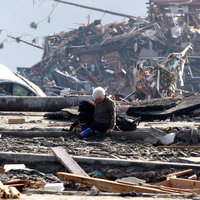
As it happened, I was writing my Supreme Court appeal in the midst of the disaster, so I took this opportunity to try and raise the alarm by including the following passage in my closing comments…
Don’t think benzos are dependence forming on prescription doses?
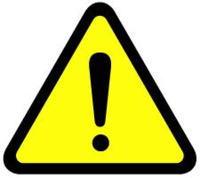
Think again!
“Tolerance and dependence can develop if benzodiazepines are used regularly for longer than 2-4 weeks. There is no minimum dose, for example tolerance and dependence have been observed after the regular use of 2.5-5mg of diazepam.”
Professor Heather Ashton: Emeritus Professor of Clinical Psychopharmacology, University of Newcastle upon Tyne, England
What are benzos for again?
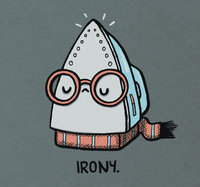
The only time I’ve ever needed to visit a psychologist in my life was AFTER (wrongfully) being prescribed benzodiazepines…
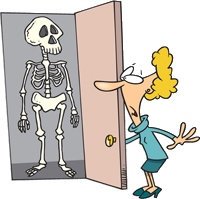
It seems the truths about the potential dangers of benzodiazepines are slowly coming out but with so many cases of prescription dependency worldwide there is clearly a long way to go.
Also, in my experience it appears as if dependency to prescription drugs leans toward a subject of taboo – almost as if society is succumbing to it.
However, is keeping these problems locked up in the closet going to help anyone or change anything?
At first it was difficult sharing my case and story online because it necessitated disclosing personal information, however, I felt the need to come out and help raise awareness outweighed this…
Seems people are all saying the same things over and over…

- I was like a zombie
- It felt like I was in hell
- It was much harder to come off benzodiazepines than anything else I'd ever had before
- It took a chunk of my life away
- It has destroyed my life
- The doctor never told me they were addictive / The doctor told me they weren’t addictive
- When I complained my condition was worsening the doctor prescribed me more...

Each one of us has a different experience of withdrawal.
The duration and degree of intensity can vary depending on the individual and there are many reasons for this.
Throughout this entire ordeal, I came to realize the importance of “Balance”.

As pressing as the court deadlines were and as demanding as the case was, without maintaining a balance in life including rest, recreation, work, socializing, diet, sleep etc. it would have been impossible to sustain.
However, it was always a razor edge fine line between making progress and maintaining health and balance.
Subsequently, it took a lot of skill and adapting.
Did You Know?
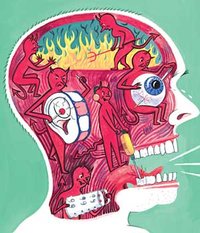
Tolerance doesn’t always develop across all symptoms.
For example, someone might develop tolerance to the hypnotic (promotion of sleep) effects but not to the anxiolytic (anxiety relief) effects, or they might develop tolerance to some symptoms of anxiety and not others. Tolerance to the various actions of benzodiazepines develops at variable rates and to different degrees (See The Ashton Manual).
A doctor that took the time to listen…

Whilst residing in state housing in Nagano, as an evacuee from Fukushima, I consulted a local ENT about ear pain from overuse of earplugs.
As we got talking he learned of my situation with regards to being displaced by the 3/11 disaster and Fukushima nuclear accident.
As a result, he also learned that I was under some stress.
However, instead of labeling me with some fancy diagnostic term and prescribing me drugs, he sat down and we discussed possible solutions as to how to I might be able to relocate, get my job back, etc.
He did this after his surgery had closed over a cup of tea – what a great doctor and what a great guy!
I included the quote in the top left corner of this site because many people thought I was crazy for pursuing my case.

However, my philosophy is we can either choose to do something, or choose to do nothing. The former gives way to hope for many people. The latter…? Whichever way, it’s all in our hands…






